 Petzlover
Petzlover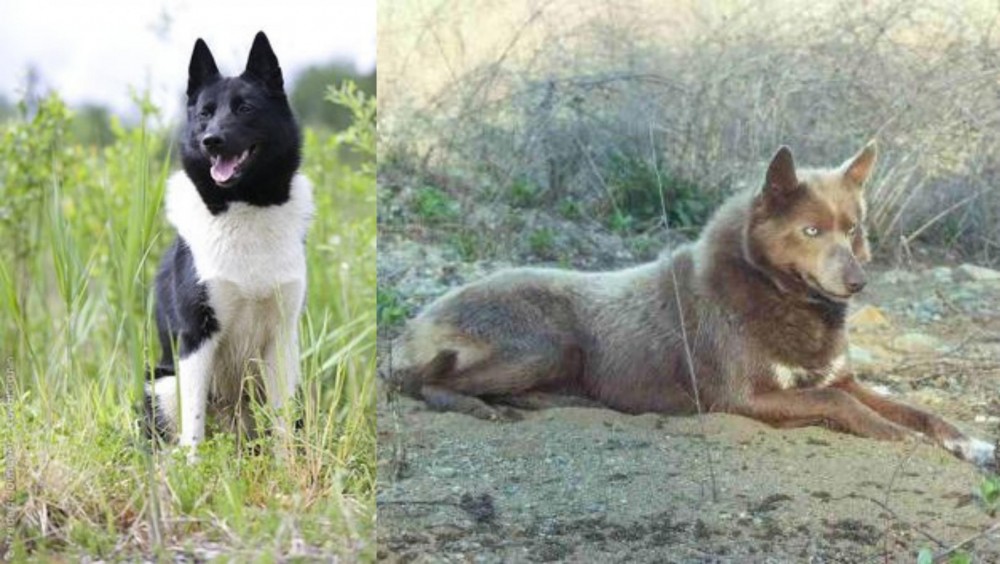 Russo-European Laika is originated from Russia but Tahltan Bear Dog is originated from Canada. Russo-European Laika may grow 17 cm / 7 inches higher than Tahltan Bear Dog. Russo-European Laika may weigh 14 kg / 31 pounds more than Tahltan Bear Dog. Both Russo-European Laika and Tahltan Bear Dog has almost same life span. Both Russo-European Laika and Tahltan Bear Dog has almost same litter size. Both Russo-European Laika and Tahltan Bear Dog requires Low Maintenance.
Russo-European Laika is originated from Russia but Tahltan Bear Dog is originated from Canada. Russo-European Laika may grow 17 cm / 7 inches higher than Tahltan Bear Dog. Russo-European Laika may weigh 14 kg / 31 pounds more than Tahltan Bear Dog. Both Russo-European Laika and Tahltan Bear Dog has almost same life span. Both Russo-European Laika and Tahltan Bear Dog has almost same litter size. Both Russo-European Laika and Tahltan Bear Dog requires Low Maintenance.
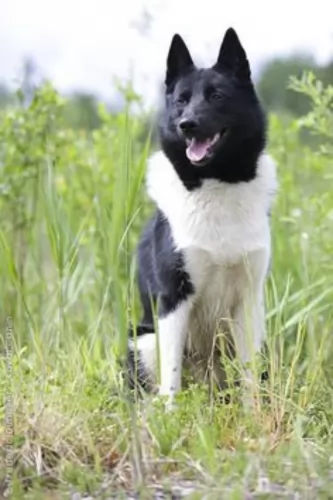 The Russo-European Laika is a hunting dog that comes from Russia.
The Russo-European Laika is a hunting dog that comes from Russia.
It is a dog that has been developed from Spitz type dogs. A breeding program was started for the dog in 1944.
The Russo-European Laika dog is recognized by the Federation Cynologique Internationale in the Spitz and Primitive type group.
 The primitive Tahltan Bear Dog comes from Canada. The dog was developed by the Tahltan people to hunt bears, so you can imagine he was a strong, brave dog.
The primitive Tahltan Bear Dog comes from Canada. The dog was developed by the Tahltan people to hunt bears, so you can imagine he was a strong, brave dog.
They also had fox-like yaps that confused bears until the hunter could come and kill the bear. These dogs are descended from pariah-type dogs with their diet being birds and fish.
It was in 1988 that the Canadian Post Office honoured the Tahltan Bear Dog by having a picture of it appearing on a stamp.
Some people claim that after the 1960s there are no longer any living descendants while others say that breeding projects were established and that there are still a few of these dogs around today. There are records on the other hand that claim the dog became extinct in the 1970s.
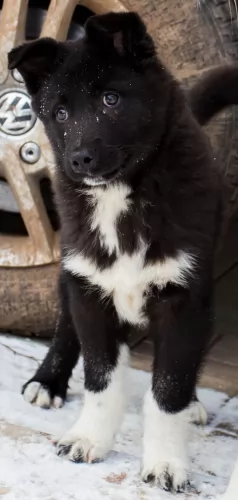 The Russo-European Laika is a medium sized dog Spitz dog that stands at between 54 to 60cm in height and weighs in the region of 20 – 23kg.
The Russo-European Laika is a medium sized dog Spitz dog that stands at between 54 to 60cm in height and weighs in the region of 20 – 23kg.
The dog has quite a strong resemblance to the Karelia Bear Dog. They are sometimes mistaken for each other.
The Russo-European Laika has the typical triangular shaped head with small dark eyes, a black nose and erect, pointed ears. These are deep chested dogs.
As with other Spitz breeds, this dog has a thick fur with a densely furred tail which is curved over the back. The double coat is fairly long and usually a dark grey color or black with some white markings. Sometimes the dog has a white coat.
This is a lively, energetic dog breed that loves to spend time outdoors. It has always been used to alert hunters to prey, using its bark to alert the hunter.Training and socialization will be necessary for the dog if you don’t want it to be barking in the house too.
He makes an excellent guard dog, protecting his human family. It is very tolerant of children too, getting on well with them as well as other pets.
The dog is known for being totally devoted to its family, being an affectionate and loyal breed that doubles as a family pet and guard dog.
 Not like a bear, but more foxy in appearance or even more like a husky, the Tahltan Bear dog is medium sized, standing at between 36 – 43cm in height and weighing between 6 – 9 kg.
Not like a bear, but more foxy in appearance or even more like a husky, the Tahltan Bear dog is medium sized, standing at between 36 – 43cm in height and weighing between 6 – 9 kg.
It is believed that they were similar to spitz and pariah type dogs, and were athletic. The short to medium length coat of the dog was mainly black or brown with some white.
He had fairly large pointed, erect ears and also a fairly pointed muzzle. The tail was interesting and was short and furry and always carried erect.
The Tahltan Bear Dog is fearless, not being deterred when meeting large bear. It's why the dog has been valued by hunters – their bravery and fearlessness.
They’re great family dogs too and will get on well with children. He is intelligent and easy to train if you want to give him training and socialization.
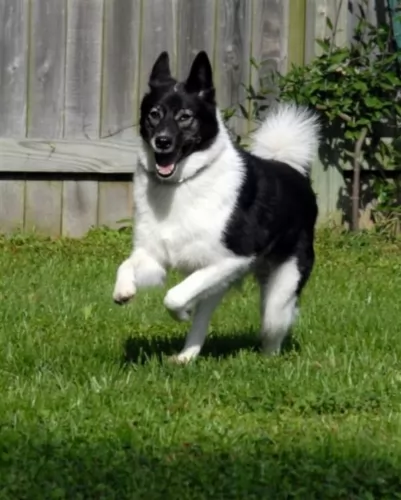 This is an intelligent dog breed, loving the time he spends with his human family but reluctant to be patted by strangers.
This is an intelligent dog breed, loving the time he spends with his human family but reluctant to be patted by strangers.
They also get along with pets that they have grown up with. They get on well with kids and make great watchdogs too. Small wonder they make such sought after pets and companions.
 Because some claim that this dog is extinct, there are only a few accounts of what he is actually like.
Because some claim that this dog is extinct, there are only a few accounts of what he is actually like.
Even though they were hunting dogs, they were devoted pets and companions of the people of the Yukon.
If these dogs are still to be found today, you will find them to be easy going, protective, loyal, intelligent, playful, alert, watchful and energetic. Just don’t allow them to get too hot as they prefer cooler climates.
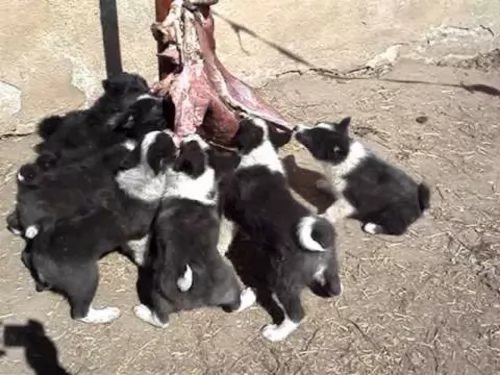 These Spitz type dogs are always known to enjoy good health, and owners don’t have to worry too much about their health as only a small number of health issues are reported with this healthy dog breed.
These Spitz type dogs are always known to enjoy good health, and owners don’t have to worry too much about their health as only a small number of health issues are reported with this healthy dog breed.
This is a congenital defect in the abdominal muscles and can result in fat or tissues being evident under the skin. A bulge is often seen in the area of the abdomen. Larger hernias will require surgery.
 Healthy dogs are unlikely to pick up any of the many common dog illnesses there are. There are many – cancer, diabetes, bloat, hip dysplasia, ear infections, dental disease and many more.
Healthy dogs are unlikely to pick up any of the many common dog illnesses there are. There are many – cancer, diabetes, bloat, hip dysplasia, ear infections, dental disease and many more.
This is a contagious and infectious disease known as canine tracheobronchitis and which is transmitted through the air. Treatment is usually administered as a nasal spray, but your dog will need to get to the vet because of his dry, honking cough and lack of appetite.
This is a viral disease which in most instances is fatal. It is mostly transmitted when an animal that carries the disease bites the dog. Your dog develops behavior which is totally uncharacteristic of him. He'll also froth at the mouth and become aggressive. Death is nearly always guaranteed.
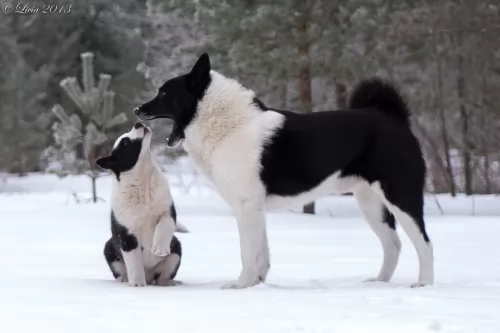 This is an energetic dog and will require a good amount of excerise. This dog isn’t suited to living in the city as they are highly active. Apart from wanting large grounds to run around in, he will need walks as well as ball- and rope games to keep him busy.
This is an energetic dog and will require a good amount of excerise. This dog isn’t suited to living in the city as they are highly active. Apart from wanting large grounds to run around in, he will need walks as well as ball- and rope games to keep him busy.
He is intelligent and needs some form of mental stimulation. There are good quality toys which one can buy for these dogs than can make them think.
Many things can change a dog’s longevity, and diet is one. A good nutritious diet with vitamins and minerals will give your dog less of a chance to get sick.
If you go for the best quality commercially manufactured dog foods, you’ll find that they are both convenient and well balanced.
To provide your dog with just a bit of variety in his diet, some home-made food added into the dry kibble from time to time will delight your pet.
No need to make preparing the food a huge issue either. Boil brown rice and chicken in a pot and add in sweet potatoes, carrots and spinach. Chop all this up and add small portions of it into the dry kibble.
Try to include a bit of raw meat occasionally and never let your dog be without a constant source of fresh, cool water
 This double coated hunting dog’s thick coarse coat will require brushing at least twice a week to free the dog of loose hair. He is regarded as a low mainenance dog.
This double coated hunting dog’s thick coarse coat will require brushing at least twice a week to free the dog of loose hair. He is regarded as a low mainenance dog.
During brushing, you would check inside his ears and make sure there are no signs of redness. Eyes of the dog should be bright, eager and free of discharge.Always keep the nails of the dog trimmed.
If you keep your pet outside for any lengths of time it is imperative that this dog has shade to lie down in as he doesn’t do well in too much heat.
Because he is a hunting dog, he is used to being outdoors and being active. He wont be content to lie around inactive for too long. He’ll want at least a walk every day and some ball games.
A pet dog can’t choose his own food so they depend on us to make the right choices for them. It’s always convenient to have a packet of commercially manufactured dog food available, but who knows if this dog, which some claim is extinct, ever ate commercially manufactured food.
If he did, you would want to mix it every now and again with home made food - boiled chicken, sweet potatoes, brown rice or pasta, carrots and spinach. This food could be chopped up and added to the dog’s kibble.